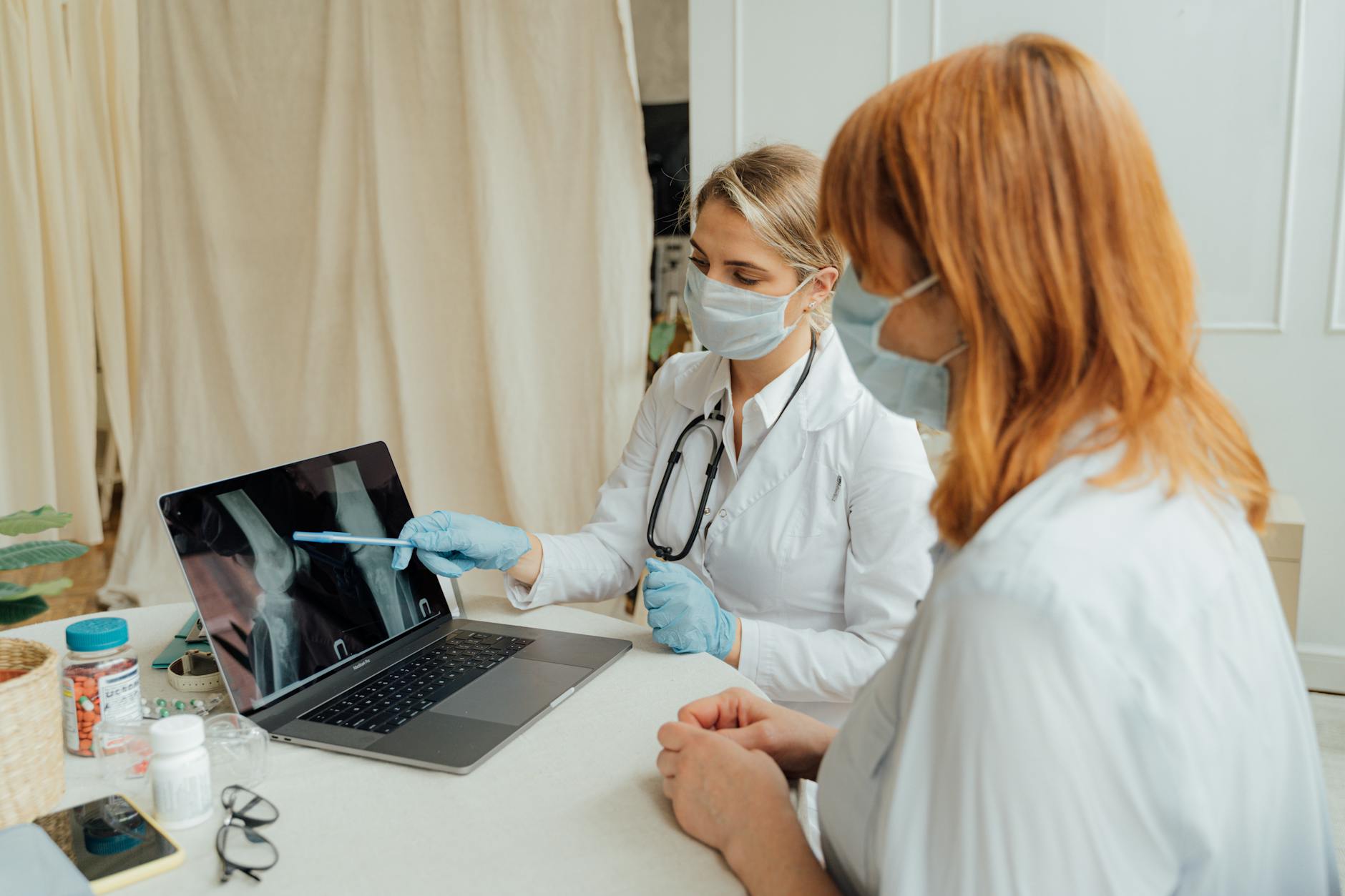How to Enhance Patient Care with Telehealth in Australia

Embracing Telehealth Basics
What is Telehealth?
As a rural GP based on the outskirts of Queensland, I've seen firsthand how telehealth has transformed the accessibility of medical services for folks living miles away from the nearest clinic, like St. Stephen's Hospital Hervey Bay. Telehealth is essentially the use of digital information and communication technologies, like computers and mobile devices, to access healthcare services remotely. It's an approach that allows patients to interact with healthcare providers without the need for physical travel, which is ideal for someone managing a tight schedule or living in remote areas.
Types of Telehealth Services
Telehealth encompasses a range of services. You can have a telehealth GP appointment via video calls, telephone consultations, or even through secure messaging. It's not limited to just consultations; telehealth also includes remote monitoring, where healthcare providers can track patients' vital signs from a distance. This array of services ensures that different medical needs can be addressed efficiently without the need to visit the clinic physically.
Technology Needed for Access
To get started with telehealth services, you'll need a reliable internet connection and a device like a smartphone, tablet, or computer. For assistance with navigating these new technologies, many rural communities offer support, ensuring that services like telehealth medicare and medicare telehealth are accessible to everyone. It's about having the right tools and a bit of patience to ensure you can comfortably use these services.
Benefits for Patients
Improving Accessibility
Growing up in the Outback has taught me a lot about keeping community healthcare flexible. Telehealth means people aren't tied to physical locations like Bundaberg Hospital to access medical support. Instead, telehealth online enables individuals from far-flung farms to urban centres to access specialist consultations and emergency support with greater ease. No more worrying about scarce appointments or long travel time for vital healthcare.
Enhancing Convenience
Telehealth has brought attention to the importance of having healthcare within reach, especially for those who live several kilometres away from the nearest healthcare centre. For instance, making a telehealth dr appointment means no more spending hours on the road heading to St. Stephen's Hospital Hervey Bay for routine check-ups. All you need is a stable internet connection and a device, like a tablet or a smartphone. This is especially helpful for busy fellows who need to balance farm work with family time, reducing unnecessary disruptions to their daily schedules.
Supporting Chronic Conditions
Those of us who manage chronic conditions understand how tiring frequent doctors' visits can become. Through telehealth, monitoring ongoing issues like high blood pressure or diabetes becomes far more straightforward and less intrusive. Many platforms allow for remote device monitoring, enabling doctors to keep track of readings without the patient having to step foot out of the door. This way, you can focus on putting effort and dedication into your responsibilities.
Navigating Telehealth Appointments
The rise of telehealth appointments has reshaped how many of us manage our healthcare, especially here in rural areas where travelling to a doctor can take considerable time and effort. While setting up a telehealth session might seem daunting, it’s actually quite straightforward and well worth it for the convenience it offers.
Setting Up Your Account
Firstly, you need to register for an account on a telehealth platform. This is similar to setting up an account for online shopping or banking. You'll need an email address and, ideally, a smartphone or computer with internet access. Once registered, you can fill out your medical history, which helps your healthcare provider better prepare for your consultation.
Booking an Appointment
Booking telehealth appointments can be as simple as selecting a time slot that suits you and your healthcare provider. Many practitioners in telehealth perth are flexible, offering appointments outside regular working hours. Remember to set up in a quiet, private area of your home, somewhere like Lady Elliot Island Health Clinic if it were in your living space!
During the Telehealth Session
During the consultation, ensure your device’s camera and microphone work properly so your doctor can evaluate your condition accurately. It's a bit like having a face-to-face chat, except through a screen. If you’re worried about missing out on personal interaction, rest assured, as your healthcare provider can still offer tailored advice and ongoing support.
The shift to telehealth makes accessing healthcare services simpler and less intrusive, which is a welcome change for many in rural communities.
Overcoming Common Challenges
Connectivity Issues
Connecting to a telehealth appointment can be tricky, especially when you live in rural areas. I recall the time when I tried to access an online consultation, only to be greeted by the spinning wheel of poor connection. It's not just frustrating – it can delay important health advice. However, there are solutions to consider. First, make sure you're connected to a reliable network. Sometimes, moving closer to your router can make a difference. For those with frequent issues, reaching out to a service provider for better options might be necessary. Remember, connectivity is essential for telehealth to bridge the gap between patients and gp after hours canberra.
Privacy Concerns
Privacy remains a significant concern when it comes to telehealth. It's natural to worry about who might be listening when discussing private health matters. Ensuring your sessions are secure requires a few checks. Use platforms that are compliant with health privacy standards, and always log in from a secure location. I've found that using headphones can help maintain privacy, as it ensures only you can hear the medical advice provided.
Technical Difficulties
Technology is marvellous, but it's prone to occasional hiccups. There have been instances when I've had difficulties with video calls freezing or microphones failing. Testing your setup before an actual appointment can mitigate some of these issues. Make sure your device's software is up to date, and if you're ever in doubt, contacting an IT professional can be beneficial. Also, searching for after hour clinics near me can provide alternatives if telehealth isn't feasible at the moment.
Telehealth Challenges and Strategies
Resolving Connectivity Barriers
In my practice here on the outskirts of Queensland, maintaining a reliable connection can sometimes feel like you're trying to find a needle in a haystack—especially with the inconsistent internet service out near Bundaberg and beyond. I've found that investing in a satellite internet connection can be a game-changer. In fact, several of my patients have managed to maintain seamless telehealth appointments by boosting their data plans. Consider consulting your local provider for packages that ensure telehealth is as smooth as possible from the comfort of your own home or even in the fields.
Ensuring Privacy
Confidentiality is a top priority, and rightly so. I often encourage my patients to select private, quiet locations within their homes or properties when engaging in telehealth consultations to ensure conversations remain private. Facilities such as the St. Stephen's Hospital Hervey Bay have set the benchmark for secure communications by employing encrypted platforms, so it’s crucial we emulate this standard even from afar. Always ensure your digital platforms and devices have updated security measures in place to safeguard your personal data.
Overcoming Technical Snags
While technology can be as temperamental as a summer storm here on Lady Elliot Island, familiarising yourself with the basic functions of your telehealth platform can save you from frantically waving your hands in front of a camera that's accidentally switched off. Whether it's a camera malfunction or a microphone hiccup, a quick practice run with a family member or friend often helps. Persisting through these hiccups will inevitably make your telehealth visits with your GP more effective.


